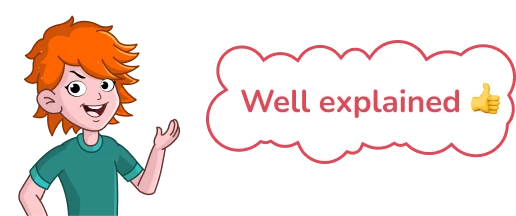
 195 Learners
195 LearnersLast updated on May 26th, 2025

Divisibility Rule of 747

The divisibility rule is a way to find out whether a number is divisible by another number without using the division method. In real life, we can use the divisibility rule for quick math, dividing things evenly, and sorting things. In this topic, we will learn about the divisibility rule of 747.
What is the Divisibility Rule of 747?
The divisibility rule for 747 is a method by which we can find out if a number is divisible by 747 or not without using the division method.
Check whether 1494 is divisible by 747 with the divisibility rule.
Step 1: Multiply the last digit of the number by 2, here in 1494, 4 is the last digit, multiply it by 2. 4 × 2 = 8.
Step 2: Subtract the result from Step 1 with the remaining values but do not include the last digit. i.e., 149–8 = 141.
Step 3: As it is shown that 141 is not a multiple of 747, therefore, the number is not divisible by 747. If the result from step 2 isn't a multiple of 747, then the number isn't divisible by 747.

Tips and Tricks for Divisibility Rule of 747
Knowing the divisibility rule will help kids master division. Let’s learn a few tips and tricks for the divisibility rule of 747.
Know the multiples of 747:
Memorize the multiples of 747 (747, 1494, 2241, etc.) to quickly check divisibility. If the result from the subtraction is a multiple of 747, then the number is divisible by 747.
Use the negative numbers:
If the result we get after the subtraction is negative, we will avoid the symbol and consider it as positive for checking the divisibility of a number.
Repeat the process for large numbers:
Students should keep repeating the divisibility process until they reach a small number that is divisible by 747.
For example: Check if 4482 is divisible by 747 using the divisibility test.
Multiply the last digit by 2, i.e., 2 × 2 = 4.
Subtract the remaining digits excluding the last digit by 4, 448–4 = 444.
Still, 444 is a large number, hence we will repeat the process again and multiply the last digit by 2, 4 × 2 = 8.
Now subtracting 8 from the remaining numbers excluding the last digit, 44–8 = 36.
Since 36 is not a multiple of 747, 4482 is not divisible by 747.
Use the division method to verify:
Students can use the division method as a way to verify and cross-check their results. This will help them to verify and also learn.

Common Mistakes and How to Avoid Them in Divisibility Rule of 747
The divisibility rule of 747 helps us to quickly check if the given number is divisible by 747, but common mistakes like calculation errors lead to incorrect calculations. Here we will understand some common mistakes that will help you to understand.

Divisibility Rule of 747 Examples

Problem 1
Is the number of marbles in a bag, 2241, divisible by 747?

No, 2241 is not divisible by 747.
Explanation
To check the divisibility of 2241 by 747, we can perform the following steps:
1) Consider the number as it is and attempt division directly for a quick check.
2) Divide 2241 by 747, which results in approximately 3.0.
3) Since the division does not result in an integer, 2241 is not divisible by 747.

Problem 2
Determine if the total pages in a trilogy, 1494, can be equally divided by 747.

Yes, 1494 is divisible by 747.
Explanation
To check if 1494 is divisible by 747, follow these steps:
1) Divide the number 1494 by 747 directly.
2) The result is exactly 2, which is an integer.
3) Thus, 1494 can be evenly divided by 747.

Problem 3
A shipment contains 3735 items. Is this number divisible by 747 for equal distribution?

No, 3735 is not divisible by 747.
Explanation
To determine divisibility by 747, consider the following:
1) Divide 3735 by 747.
2) The result is not an integer, approximately 5.0.
3) Therefore, 3735 is not evenly divisible by 747.

Problem 4
A library has 7470 books. Can the books be divided into 747 equal sections?

Yes, 7470 is divisible by 747.
Explanation
To verify divisibility, use the following steps:
1) Divide 7470 by 747.
2) The result is exactly 10, which is an integer.
3) Hence, 7470 can be divided equally by 747.

Problem 5
Is the sum of donations, 2988, divisible by 747?

No, 2988 is not divisible by 747.
Explanation
To check divisibility, perform these steps:
1) Divide 2988 by 747.
2) The result is approximately 4.0, not an integer.
3) Thus, 2988 is not divisible by 747.


FAQs on Divisibility Rule of 747
1.What is the divisibility rule for 747?
2.How many numbers are there between 1 and 1000 that are divisible by 747?
3.Is 1494 divisible by 747?
4.What if I get 0 after subtracting?
5.Does the divisibility rule of 747 apply to all the integers?
6.How can children in Oman use numbers in everyday life to understand Divisibility Rule of 747?
7.What are some fun ways kids in Oman can practice Divisibility Rule of 747 with numbers?
8.What role do numbers and Divisibility Rule of 747 play in helping children in Oman develop problem-solving skills?
9.How can families in Oman create number-rich environments to improve Divisibility Rule of 747 skills?
Important Glossaries for Divisibility Rule of 747
- Divisibility rule: The set of rules used to find out whether a number is divisible by another number or not.
- Multiples: Multiples are the results we get after multiplying a number by an integer. For example: multiples of 747 are 747, 1494, 2241, etc.
- Integers: Integers are the numbers that include all whole numbers, negative numbers, and zero.
- Subtraction: Subtraction is the process of finding out the difference between two numbers by reducing one number from another.
- Verification: The process of checking the accuracy of a calculation, often by using an alternative method like division.
Explore More numbers
About BrightChamps in Oman


Hiralee Lalitkumar Makwana
About the Author
Hiralee Lalitkumar Makwana has almost two years of teaching experience. She is a number ninja as she loves numbers. Her interest in numbers can be seen in the way she cracks math puzzles and hidden patterns.
Fun Fact
: She loves to read number jokes and games.




